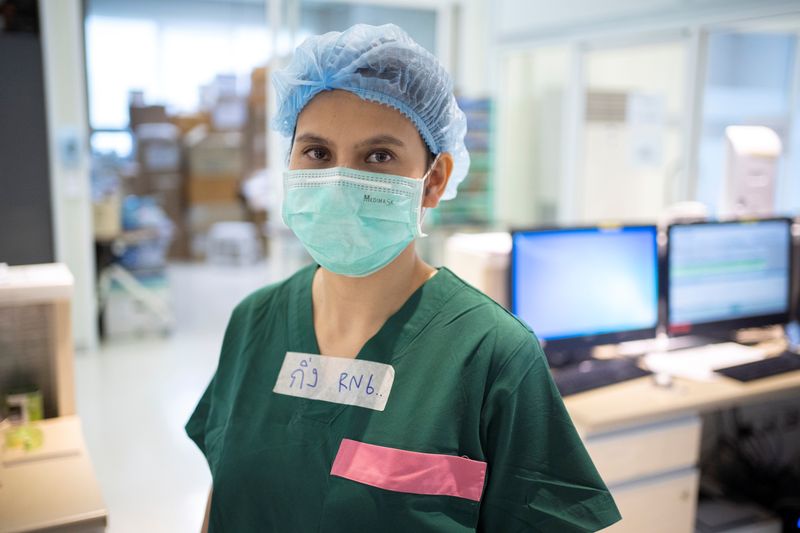By Jiraporn Kuhakan
BANGKOK (Reuters) - At the end of every 12-hour shift working with critically ill coronavirus patients, Thai nurse Suparvadee Tantrarattanapong has to disinfect herself before going home, where she sleeps in a separate room from her husband to avoid infecting him.
The 36-year-old nurse in the intensive care ward at Bangkok's King Chulalongkorn Memorial Hospital says it's a gruelling time, but saving lives is the most important thing - along with protecting her own loved ones.
"I’m scared of getting infected and the virus leaking from the hospital," said Suparvadee, who has worked in the intensive care unit (ICU) for 14 years.
But, despite her worry, she encourages patients to have hope.
"I keep telling patients that they are not fighting alone," she said.
Suparvadee's job involves knowing every detail of each patient's condition. The novel coronavirus outbreak had also forced staff to learn a new workflow because none of them has experience with this kind of virus, she said.
Since March 9, her hospital has treated nearly 200 coronavirus patients. Staff pride themselves on having not lost a single one.
The hospital also pays close attention to preventing infections among staff.
While fully suited in protective gear, Suparvadee guides her junior nurses on safety measures through their 12-hour shifts.
On Wednesday, Thailand reported nine new coronavirus infections but no deaths, taking its tally to 2,947 cases and 54 deaths since the outbreak began in January.
Suparvadee's husband, Udomsak Tantrarattanapong, 37, said he understood and supported her work.

"I told her to keep on fighting because whenever something new happens she gets through it just fine - and I’m sure she will this time as well," said Udomsak.